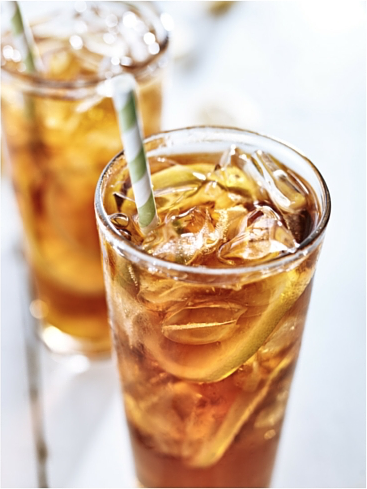Posted by Sierra Soleimani on Oct 30th 2015
13 Habits that Wreck Your Teeth
My dentist once told me, "Your goal should be to die with your own teeth." I thought that would be a pretty easy goal until I found out that 25% of Americans over the age of 65 have lost all of their permanent teeth. There's many every day habits that reduce the life expectancy of our teeth without us even realizing it. How many of these habits are you guilty of?
- Coffee
- Thumb Sucking
-
- Biting your nails
- Drinking lemon juice
- Chewing on ice
- Teeth grinding
- Playing sports without a mouthguard
- Using teeth as a tool
- Soda
- Brushing teeth too soon after eating
- Not replacing toothbrush often enough
- Tobacco
- Brushing teeth too aggressively
Coffee is notorious for leaving behind stubborn stains on our mugs and our teeth. In addition to the unsightly stain, the acid in coffee can wear away the enamel on your teeth. The acid and bacteria in your mouth feed off of each other leading to cavities, gum disease or bad breath. Many people bleach their teeth as a solution, but this has been proven to actually make them more susceptible to future stains.
Thumb sucking in infants is completely normal and actually helps them learn how to self pacify to entertain themselves. Most infants quit on their own by ages 2 or 2 ½ , but kids still sucking at the age of 5 are already starting to do damage to permanent teeth. This puts them at risk for an abnormal bite or speech.
Nail biting, medically referred to as Onychophagia, is a habit that is often associated with stress and is most common among teenagers. Your nails are a cesspool for pathogenic bacteria like salmonella and E. coli. Biting your nails can also do real damage to your teeth. Your teeth are not meant to be in constant motion. Biting your nails keeps your jaw working, wearing out your teeth faster. According to the Academy of General Dentistry (AGD), nail biting can result in up to $4,000 in additional dental bills over one lifetime.
Citrus fruits like grapefruit, oranges, limes and lemons are high in acid which can erode the enamel and expose underlying
dentin. Chew on a piece of sugarless gum can help get rid of the acidic residue.
Our teeth are not designed to crush such hard solids, which can cause yourteeth to crack. For some people chewing on ice can be an addictive habit also referred as Pagophagia, a form of Pica disorder involving the compulsive consumption of ice.
80% percent of people who grind their teeth (Bruxism) at night are unaware that they are doing so. It usually isn’t brought up until the dentist notices signs on the teeth or a sleeping partner hears the sound of the grinding. Letting bruxism go untreated can lead to serious consequences such as cracked teeth, worn down enamel, gum recession, headache or jaw pain. If you suspect signs of bruxism, visit your dentist who can make a precise evaluation and give proper advice for treatment.
How likely are you to get your teeth knocked? About 60 times more likely if you aren’t wearing a mouthguard. Dental injuries are a serious concern in the sports industry. As much as 39 percent of all dental injuries in children are caused by direct hits with a hard object, such as a puck or ball or stick in player-to-player contact. Mouth guards can help protect the teeth from the force impact while minimizing the risk of broken teeth and injured lips, tongue, face or jaw.
In a quick pinch our teeth are a go-to tool for removing clothing tags, cutting tape or opening a bag of snacks. It’s something we always have readily available. According to Dr. Sorin Teich, who teaches dentistry at Case Western Reserve University, teeth are built to withstand vertical forces, not lateral forces.
Similar to coffee, wine and lemon juice, soda is very acidic. The acid in the soda can quickly eat away at the enamel, making the teeth more vulnerable to cavities. According to a study conducted by the AGD, drinking soda through a straw can reduce the risk of cavities and tooth decay.
Brushing your teeth up to 30 minutes after eating an acidic food can actually do more harm than good. Brushing can rub the acid deeper into the enamel. The study conducted found that there was noticeably less wear when brushing happened 30-60 minutes after eating.

Most people replace their toothbrush once, maybe twice, a year, about as often as they see a dentist. Little do they know that a toothbrush can harbor harmful bacteria in the bristles. The American Dental Association recommends replacing your toothbrush every three to four months or once the bristles are frayed.
Aside from discolored teeth and bad breath, smoking can increase the risk for gum disease by 50%. It all starts when bacteria on your teeth get’s underneath your gums, causing an infection. Smoking can also weaken the immune system and therefore the body’s ability to fight the infection.
Lighten up!….on the brushing, that is. Brushing your teeth too hard can cause the gums to recede, leaving your teeth exposed and prone to infection. There’s no need for the added pressure. Plaque and bacteria are better removed with a soft and gentle scrub.
Who knew that such innocent habits may actually be reducing the life of your teeth? Although many of these habits don’t have immediate effects, over time they can do irreparable damage your teeth.


